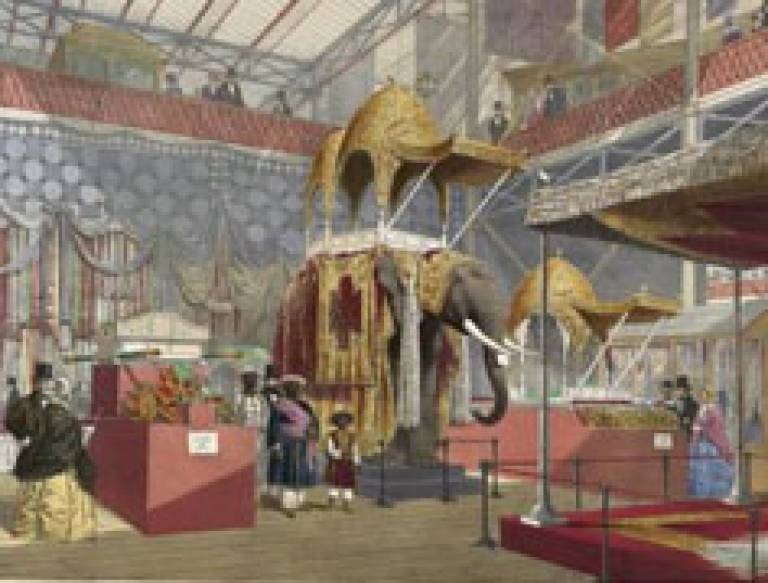Europe from the outside in? Imagining civilization through collecting the exotic
21 October 2015, 12:00 am

Event Information
Open to
- All
21 October 2015
This conference will consider the historical emergence of a distinct European social imaginary in terms of Europe's appropriation and internalization of elements from other continents and civilizations. With a focus on the function of ethnographic collections in facilitating this process, it will also investigate the status of such collections today. How does European museums' production of the exotic retain its appeal, apparently undiminished, when faced today with global audiences and changing attitudes to colonial pasts?
|
When: Where: No registration required, all welcome. |
Europe's early Modern discovery of the 'exotic' fundamentally transformed an existing classical and medieval sense of what constituted the 'strange' and the 'barbarian', and established a relationship to the 'outside' world based on wonder and curiosity, which persists to this day. Through cabinets of curiosity and the development of ethnographic collections that brought together objects from around the world in order to represent it, the world was implicitly divided up into European and non-European territories on a microcosmic scale, for example by distinguishing (European) "rarities" from (non-European) "fetishes".
We tend to think of this period of curiosity in museums as an event that later gave way to more 'rational', taxonomical approaches and the 'exhibitionary complex'. Yet in terms of the development of specialist museums - the 'ethnographic museum', or folklore and antiquities museums - the theme of wonder and the exotic appears to have remained constant. Indeed, the failure of those ethnographic museums that in recent years have cleared their historical materials from display in preference for newly made or everyday objects of socio-political relevance is a case in point. The spectacle of the exotic retains its appeal to a range of global publics.
The temporalities that shaped exhibitions that once declared Europe to be in an exceptionally advanced time and place, have now accumulated into a complex, contested and contradictory assemblage of objects, the assumptions of which need to be historically interrogated in a far more interdisciplinary fashion than before. Bringing together a range of international Classicists, Anthropologists, Heritage scholars and museum professionals, this conference will offer diverse perspectives and makes a timely intervention in considering the role of ethnographic museums, as well as the nature of European identity and civilization, now, in the past, and in the future.
Confirmed Speakers:
Caroline van Eck (University of Leiden); Chris Gosden, (Pitt Rivers Museum, Oxford); Giovanni Kezich (Folklore Museum, Trentino); Mark Meadow (UCLA); Peter Pels (University of Leiden); John Picton (SOAS); Barbara Plankensteiner (Yale University;) Stephen Quirke (UCL Egyptology); Oscar Salemink (University of Copenhagen) Pieter Ter Keurs (University of Leiden); Miguel John Versluys (University of Leiden); Bente Wolff (National Museum of Denmark, Copenhagen)
A detailed programme will be made available in late September.
Organisers: Pieter ter Keurs (Leiden), Peter Pels (Leiden), Michael Rowlands (UCL), Oscar Salemink (Copenhagen)
 Close
Close

